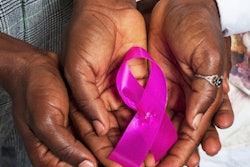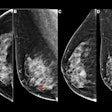
Black women have higher breast cancer mortality and recurrence rates than non-Hispanic white women, found research published on January 21 in JAMA Oncology.
Dr. Kent Hoskins, associate professor in the University of Illinois Chicago College of Medicine's division of hematology/oncology, and his team sought to discover if breast cancer-specific mortality among women with estrogen receptor-positive, axillary node-negative breast cancer differs by race. Similarly, does prognostic accuracy of the genetic test Oncotype Recurrence Score differ by race?
The group found that, yes, it did, even when Black women were diagnosed with breast cancer at an early stage. Hoskins and colleagues included data from 70,000 patients across the U.S. who were diagnosed with stages I to III, estrogen receptor-positive breast cancer between 2004-2015. They culled the data from the national Surveillance, Epidemiology, and End Results (SEER) registry.
Typically, women with hormone-dependent breast cancer have a favorable prognosis, but even after adjusting for age at diagnosis, tumor stage, and treatment, Black women die more frequently than non-Hispanic white women with axillary node-negative, hormone-dependent tumors that have a comparable recurrence score, the authors found.
Black women are also more likely to have a high-risk recurrence score, meaning they are disproportionately more likely to develop biologically aggressive tumors. The underlying reason is currently unknown but is under research.
Related, the oncotype test had lower prognostic accuracy in Black women, which indicates that genomic tumor tests may require reconfiguration in populations with greater racial and ethnic diversity, according to the researchers. Furthermore, systematic ways in which social structures harm or otherwise disadvantage individuals also play a role in the health of Black women, the study team added.



















